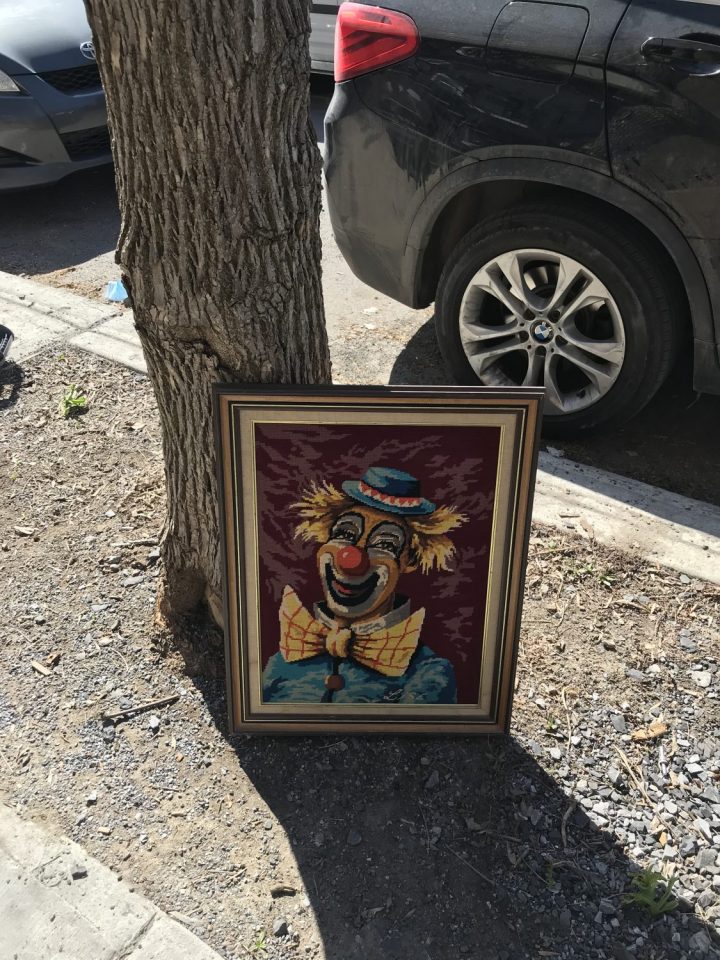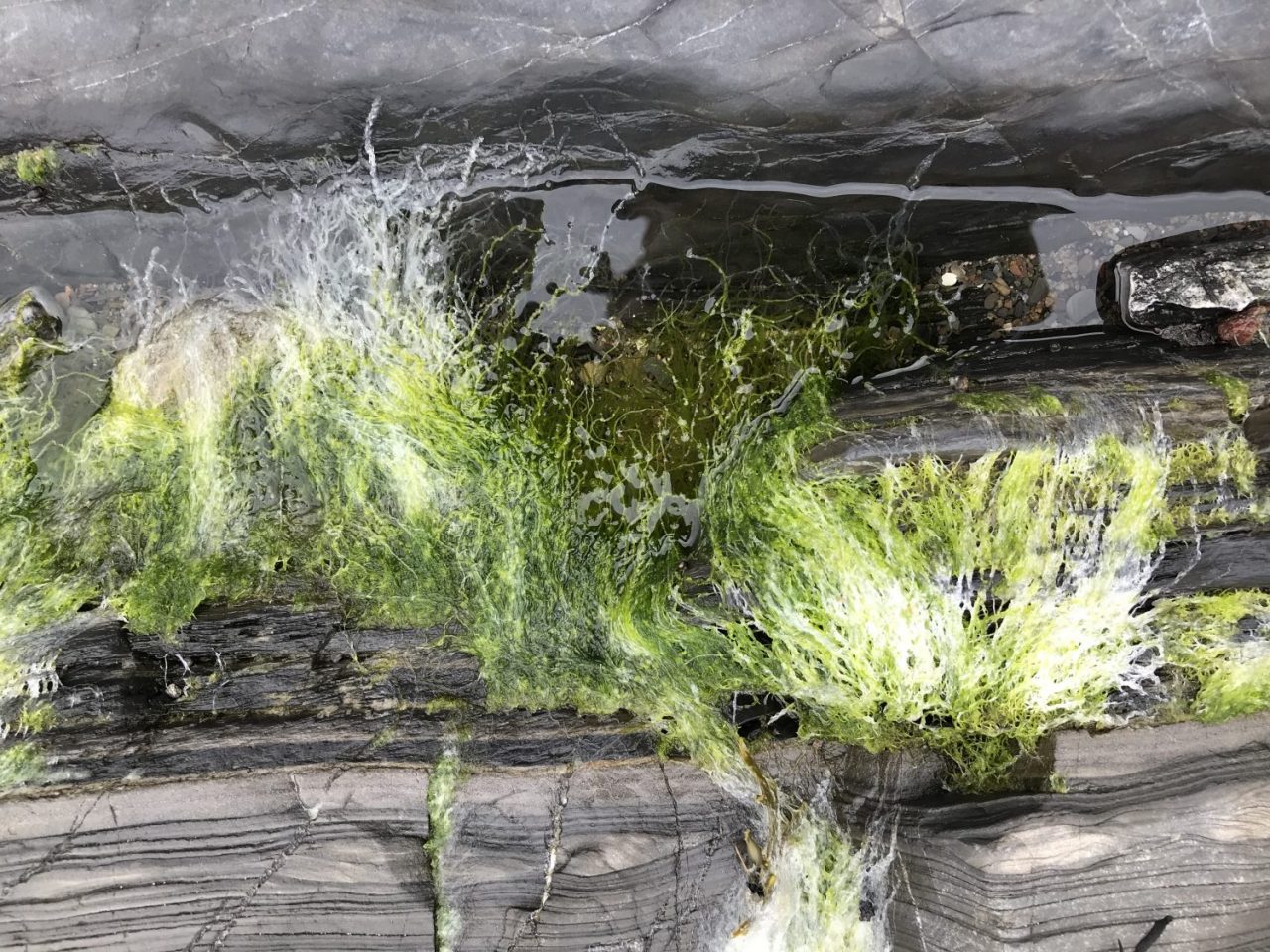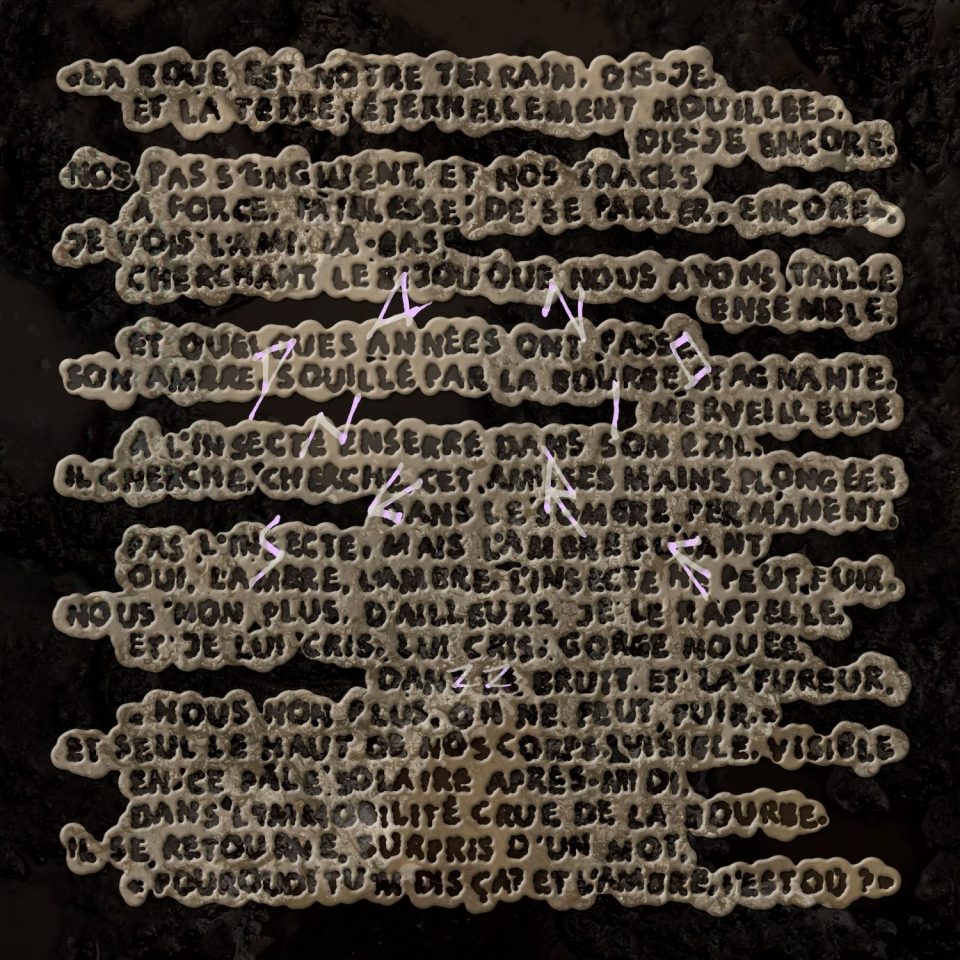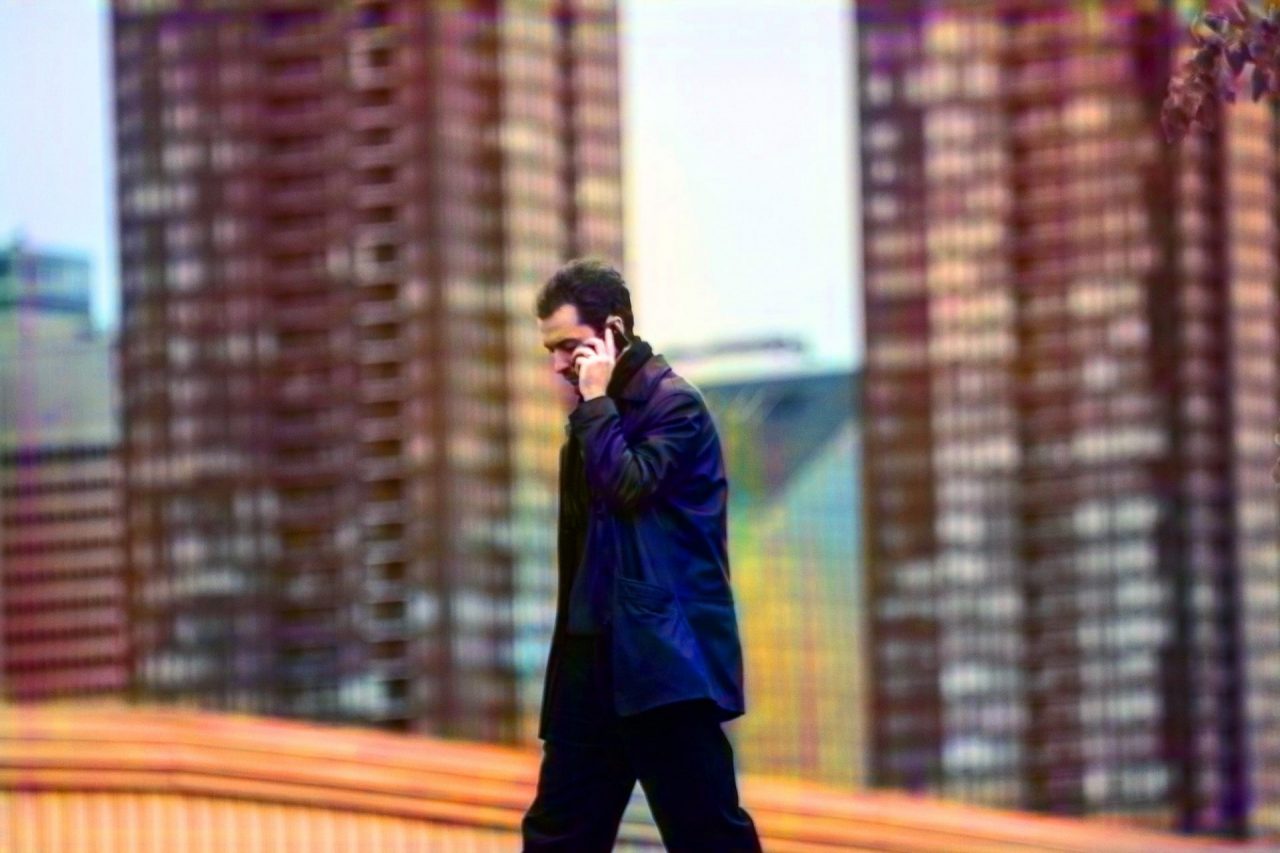Texture Tape 037:
Racine
Over the course of our conversation it becomes apparent just how much the act of sharing, of mutual construction and creation, means to Racine. In the latest Texture Tape, the Quebecois producer opens us up to a selection of music new to his ears – considerately chosen with a keen desire to elicit both warmth and disquiet.
Who is Racine?
I would just say – I’m a Francophone, a Quebecois. I’m fascinated by sounds, scents, and pretty things in general. I’m into food as well, wine, and sharing that with friends.
The idea of sharing feels key to your work. Obviously Amitiés, as a title, is very pertinent to that too. Do you find that music is your main mode of sharing, or is it one amongst many?
Both are acts of sharing but in different ways. When I do music I don’t feel like it’s the same as sharing a beer or a meal with someone. Sharing music is more like … it gives you a thrill because it’s uncertain but at the same time it’s rewarding. So I think it would be a lie to say that artists are doing this purely because they want to share – I think there is some kind of reward that is really interesting when you do art, but when you share a meal with someone it’s not about the reward. It’s more about really connecting with people. That’s two really different ways of sharing. I guess I could say I love sharing in general.
It’s interesting to see it as sharing as the album was written within, and to deal with, isolation. How did it feel to make something that expressly couldn’t be shared with people as you made it?
I’d say that usually when I work on stuff I have some other artists, friends with me, trying to figure out the piece or something. It’s a lot easier mentally to do it like that, I’ve found. This album was a lot harder emotionally because I had to basically deal with my own self-confidence and try to find ways of making an album that were interesting, but at the same time not having the direct feedback from peers. I would say it was a hard album to do. The first draft was a lot different from the final version; I had to find ways to try to keep that interaction with other artists so I basically found people on Discord – other groups of people with whom I could share my music and my drafts as I went. Because I don’t believe it’s possible to do an amazing piece of work alone. You have to at least have some kind of a dialogue with people. It could be, like, collaboration, but it could be just be discussing a particular piece or sound.
Were these newly formed communities in the pandemic? Other artists?
There’s one in particular that’s growing big but its also intimate. It’s weird – it’s the first time for me joining Discord communities like this. At first I was like “I’ll join, I’ll just see what’s going on there and maybe meet some people”. But after a bit it became a really strong community – I’m really thankful for that. I wouldn’t say “life-saver” because that’s a bit dramatic but it was really interesting to have this during a pandemic because it’s artists from all over the world – Americans, European artists, artists from Asia – all over in this little community. It’s been great. I met people – not physically met people – but met people I formed a bond with there.

One question I had was about how you create, moving from physical isolation to the idea of performing live. I wanted to know how it feels to take that journey. Have you performed anything from the album since it’s been released?
Since making the album, no. The last performance I did was in 2020 for Mutek just at the beginning of the pandemic. It was great but the album wasn’t done, it wasn’t close to being done at all. I had some pieces together but not that much. The next gigs I have, the very next one will be at Café OTO in London, will be the first with the new album. Usually what I do for every performance is to compose new music basically: I don’t really know how to play live that well but I still want to give something special so I came up with the idea of creating new pieces just for a specific performance or a particular tour and trying to give people something unique they won’t be able to have on an album. It’s my way of trying my best to give something special even though I don’t really perform. Of course I do some elements live but I feel like it’s not about that anyway. I don’t really like people looking at me or doing anything gimmicky. It’s not that I want to play in total darkness, but I don’t like to be the centre of the attention that much when playing live. That being said I try to give something really fresh to people.
So the sharing is just the music. Does it make it less personal? I find it interesting that it’s not about you (as an individual) performing the music – it’s about the music being the focus.
Yeah exactly. But not in an arrogant way – I don’t want to say that the music is so good you should only focus on that. Its not like that. I just prefer – if I would for instance bring a guitar on stage – now it’s interesting because you want to see the artist playing, you expect to see artists playing instruments live. But I don’t really like seeing people twisting knobs. I don’t even understand what they’re doing anyway, even though I do music with electronic components. Like – the best show I saw in my life was electronic music mostly and I didn’t look at the people playing because I didn’t care. I saw Autechre live and they played in total darkness. But who knows if what they did was live – who knows – maybe it was a prerecorded mix. I didn’t care because it was so good. I’m still doing live manipulation when performing: it’s not just playback but I prefer the music to be the focus.
One of the things I wanted to ask was – did the potential, or lack of potential, for perfoming it live play into the way you assembled and composed it? Or was that a secondary thought when you were writing.
For sure: when you do music you try to imagine what it would sound like on a big PA system. You always keep that in mind. But at the same time when you compose an album, I know for a fact that it doesn’t matter because I won’t play it live. How it’s made won’t be the version I play live anyway so I don’t really try to think about that. I think its healthier for me at least to think how it would sound in a cosy living room – that kind of setup. It’s more interesting I reckon. This one personally I don’t know why but when I did it I tried to think about how it would sound on beautiful vintage speakers in a house.
The idea of listening to it in a warm space – on vintage speakers in a home setting – sits against the sense for me that some of the album is quite sparse, maybe cold if I’m thinking in terms of emotional temperatures or colours. It’s curious that you would envision it playing in a warm space when to me it sounds quite cold – the theme of isolation adds a sense of distance to it. Is that a way of bridging those two moods, or do you not see it as cold or isolated in that way?
I don’t know if it see it as cold or warm. Usually when you think about electronic music, and especially electronic music that’s not melody or harmony focused, you organically think of maybe a colder sound, but for some reason I try to do something on the warmer side. Even thought the sounds I use are more digital, I still try to make it warm and enjoyable from a listening perspective. I say that because I tend to think a lot of the colder stuff is not as enjoyable. Florian Hecker for instance, he’s really awesome but his music is really cold. I find it fascinating but I don’t know if the right way to listen to Florian Hecker is in a cosy living room. Maybe in a gallery or a live show setting instead.

I wanted to ask also whether what you’re creating has to be enjoyed as it’s purpose. In the mix, it’s on the softer side but there’s one incredibly loud, grating (Merzbow) track in there that’s a difficult listen. I wanted to ask about whether it’s necessary to feel discomfort in order to communicate it ….. Maybe my question is actually: what was your intention in putting that particular song in the mix – breaking up the others?
Well you said it, to break it up. If for instance I had something more ambient there it would have been predictable in a way. But maybe it is also – putting a really loud track in the middle is predictable – I don’t know. I don’t mean to say I am necessarily super unpredictable.
It was unexpected for sure.
It’s unexpected. But at the same time I’m a defender of the idea that all kinds of music have value. If it’s harsh, its harsh and that’s okay. It’s not dangerous. I feel like some people feel threatened by loud or piercing sounds, music that is totally atonal, and I tried to say with this choice that every kind of music has value, it’s okay to mix them up and to see it as warm potentially as well. It’s a Merzbow track, he usually explores the limits of distortion, playing with the edge of that. I feel like this track was a blues track, really warm, but the deep notes were really violent – it has a weird feeling and it fitted really well in the whole mix. It’s followed by a fellow Quebecois artist Myriam Gendron with more of a proper ‘blues’. The choice was to create a cut or fracture in the mix and to keep attention.
You’ve talked before about sampling jazz and classical music, and I really like the idea of starting with something that’s very different to the end result whilst retaining something of the original. Do you find that when using samples you try to retain some mood or emotion from samples or is it just a sound source that then gets transferred?
It depends on how you work. For me working with samples is like working with a time capsule in a sense and it gives unique notes. When I do music I … not consciously maybe but unconsciously I work like with scents or perfumes – there’s a bass note, a middle note, a top note maybe, there’s like certain ingredients. And working with samples is more organic in a sense. With a sample it’s more complex – it’s like an assemblage of scents together and it can create some accents and discords that are really interesting. So yeah when I do sample it can be like a fuel for inspiration but it also can be just a tool. I don’t want to make purely digital, synthetic music.
So it’s a way of keeping the humanity or texture within the music?
Absolutely. I love the fact that it’s a time capsule. Lately I’ve been sampling the radio – there’s a good VST called “Radio” from Plugin Boutique that’s awesome – it’s internet radio in a VST format so you can hit random and find some really interesting things that are happening live. It’s so weird in a sense – it’s that idea of time capsule but like a time stamp. You can find some really creepy stuff as well – there are a lot of numbers stations. At the end of the day it’s also a tool – I know for a fact you must also think that sampling is OK, everyone tends to say it’s OK. There are still people that are trying to say that it’s like stealing music but I don’t see it that way at all. I just feel like music exists and people do stuff – it’s interesting to recycle notes, and moments from that. To re-appropriate it in a way. I love sampling – I do a little less than I did before. For the first album on Danse Noire, Quel’que chose tombe, it was more sample based, this one is a bit more composed in a way. And now I almost don’t use samples any more but because I’m not inspired by them right now. It will come back for sure.

Is that in the current stuff you’re working on now? You’re not using samples that much?
No not really. I sample my own stuff for some of the things I’m working on at the moment. It’s a way of recycling your own music and giving it another life, another meaning – which is great because sometimes you make music, put it up on the internet and it’s done. Recycling it helps you keep possession of your work.
When you sample stuff are you actively considering the source or the context? I’m interested in how you might move from an older piece of jazz music to a final composition – does the context inform the final piece or is it that once it’s within a compositional space – is the history of a sample coming into the piece or is it left behind?
It’s a good question … maybe the fact I don’t use samples as much any more could be because I have had to think about what I am sampling and what can be appropriation in that sense. I’m more conscious about what I do with the stuff I sample. You have to think about those things when doing music, you have to keep a consciousness about what youre doing with the material you’re using and yeah, for instance, I used to use instruments that are not part of my culture, and doing that isn’t okay I think. I don’t do that any more because if you want to use some type of traditional instrument, you can, but the way to do it is to collaborate with an artist that space. I try not to use as many samples as I did before.
I like that we’ve come back again to the idea of sharing, collaborating as core to your work. What was your relationship to producing the mix – was there an idea or inspiration that you wanted to approach with it?
For this one it was mainly new music I have discovered. The mix I did just before this one was for Radio Raheem in Milan – all about music that I have cherished over my life that had a lot of meaning. For this mix I wanted to do something really different so it was quite the opposite – about music that is new to me as well. There’s some blues because I grew up listening to blues with my father, so there is a level of personal meaning, but it’s more about new music.
Is there a lineage you can connect between your love of blues and the music you’re creating now?
Of course – the music I make at the moment is a lot more played, more improvisational than it was before. It’s a bit more blues in a way, maybe in the way that Pink Floyd was inspired by the Blues: a bit uncanny, unusual, but retaining the sense of melancholy. I guess this mix makes a lot of sense given that.
I really like that you named one of the songs on the album Ibiza. Having just looked out of your window it feels like the furthest possible place from where you were writing the album – was it a concept when you went into the song? Or was it a retrospective naming?
One of the reasons was in the tracklist, it created a beautiful poetry. I thought the word itself really sounds beautiful. And like the image it brings is really interesting in this album I think because it can be a bit cold and Ibiza is like something really sensual, a name that is sensual and hot and all you think about is people dancing and sweating. It’s also because I named it because it’s the main chord sequence from a track in a Tiesto compilation – the In Search of Sunrise compilation. I guess it’s like sampling in a way.
Onto our perennial questions – What’s your favourite noise?
I have a couple of them, mainly attached to growing up, childhood memories. One of my favourite sounds ever is just wind blowing into your hair or into the trees in general .So the sound of wind, even though wind doesn’t really make a sound. I also for some reason really love distant plane sounds. I dont know why it’s deep in me … and lawn mowers. I don’t know why I love lawn mowers … It’s a really beautiful sound. Maybe because I grew up in like, the suburbs. So this sound, is really reminiscent of the summertimes and summertimes are reminiscent of liberty when you’re a kid. So they’re really, they’re all positive. I also don’t know if you’re familiar with this sound, but here in Montreal, we have heaters that lie on the floor, a lot of the time. An electric heater basically. And the sound is like a really, really subtle hum. It’s really comforting as well.
Is there a show or performance that you’d love to go back in time to experience – something you’ve been to or something that you didn’t go to?
Okay, I have two answers for that. I have one from my experience – there was a show I did and I would totally go back. I will remember this all my life. It was the show we did in Prague in this velodrome. It was insane because it’s huge, you know. It was a pretty much in the middle of nowhere and it’s a in a huge field, there’s a huge loop where bikes just ride in circles. We did a show there with Genot Centre and it was just perfect. I played with Justin as Corporation and when we played at some point it started to rain just a little bit. It was perfect. It felt as if it was our own Pink Floyd live at Pompeii, you know? Oh my god, that was beautiful.
Another show that I didn’t do that I wish I could go back was Tim Hecker’s collaboration with Geza Schoen – Ephemera. It was in total fog, at times with bright colours and perfume and it was just a beautiful moment.
A piece of music you’ve always wanted to perform but like never had the chance or not being able to. Do you have anything like that?
I don’t think I have like a particular song or piece. I have always wanted to do live improvisation with real instruments, or real concrete sound with a microphone. I’ve explored it in the studio, but to do it in a live context – it’s really dangerous because it can be a disaster, but at the same time it can be so special. With other people too. Not alone, playing alone is a bit sad, in my opinion.
A track or a piece of music that always makes you dance.?
I want to thank you by Alicia Myers. It’s basically a Christian disco song. She wants to thank God because he sent her a man that was worth keeping. It’s really good.
Your favourite music venue or space?
Churches in general. Everything is second to the acoustic in a church, you know. They design these big kind of spaces because the voice of the priest has to reach everyone, and there’s amplification and it’s just, it’s a really fun to play in a church, in general. It’s just beautiful. There’s a peace that comes with it. People are less loud – even if there’s alcohol they will be less prone to drink a lot in a church, I don’t know why. Maybe old baggage we still have. But in a respectful way, it’s really fun to play in a church.
It’s kind of fitting, because the next question is the soundtrack to your funeral, if you know what that would be?
I would say the Funeral Canticle by John Tavener. Tree of Life is my favourite movie ever, and there’s this piece in the movie and it’s perfect, because it feels like it gives you space for beauty and sadness, it can put a smile on your face, I think. it makes it feel like life is precious. Yeah, it’s really a masterpiece.
A song you’ll still be listening to in 50 years’ time?
The same one. The same one. If I had to put another one, it would maybe be Cascade by William Basinski. It won’t ever sound old – it’s so unique it will last forever.
Racine plays on tour across Europe this spring. Dates include Café OTO, London on the 24th February, and the Meat Factory, Prague, on the 27th March.

Terry Riley - The Harp of New Albion: I. The New Albion Chorale / The Discovery
Paul Schütze - Rivers of Mercury
Benjamin Lew & Steven Brown - Elle avanca
Merzbow - White Blues Part II
Myriam Gendron - Go Away From My Window
Romance - Once Upon A Time

